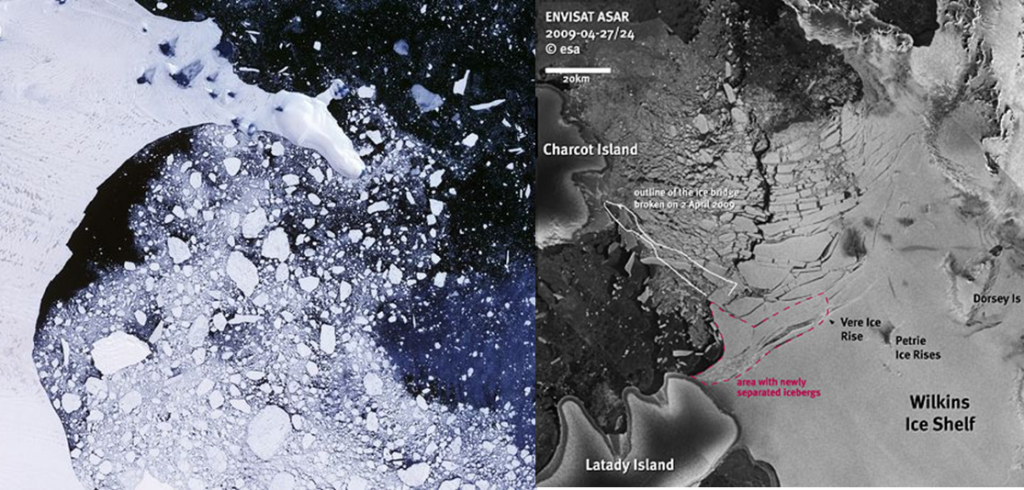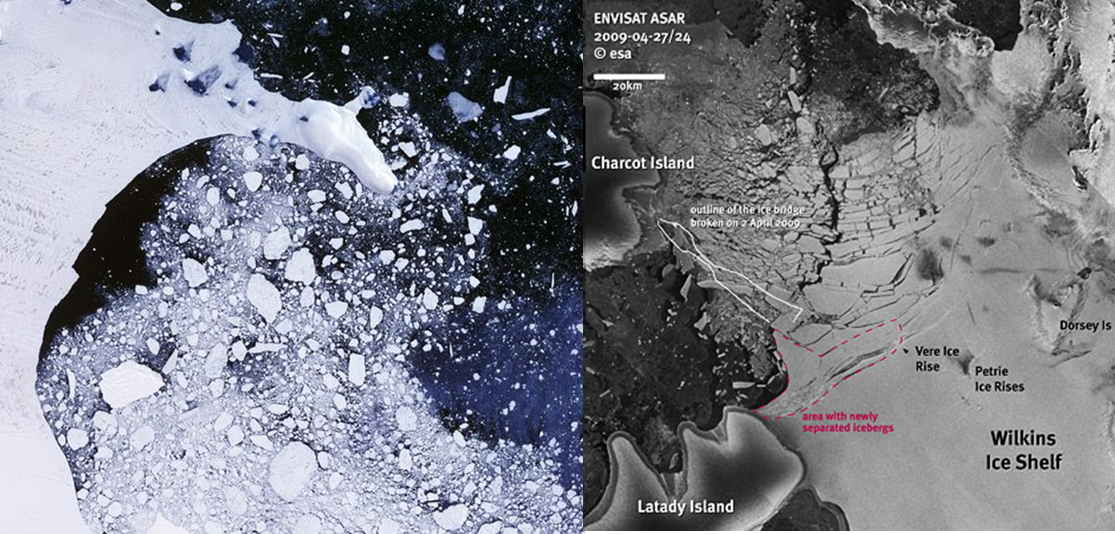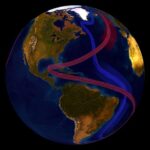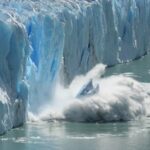A new study looking at atmospheric temperature changes from ice core samples shows that the Antarctic Peninsula, the part that juts out towards Argentina, has been warming naturally without human intervention for more than half a millennium and recent ice shelf collapses may be attributable to this rather than any human influence. This part of Antarctica has seen temperatures rise 2.6 degrees Celsius (4.7 Fahrenheit).
The study, done by the British Antarctic Survey, is published in the journal Nature. Scientists from the United Kingdom, Australia and France reconstructed the last 15,000 years climate history from James Ross Island in the Antarctic Peninsula, one of the fastest warming places on Earth. They extracted an ice core measuring 364 meters (approximately 1,200 feet).
Evidence shows that at the end of the last Ice Age, the peninsula warmed 6 degrees Celsius (10.8 Fahrenheit), almost 1.3 degrees Celsius (2.34 Fahrenheit) warmer than today’s temperatures. Evidence shows shrinkage of both the Antarctic ice sheet and ice shelves during that period. This was followed by two cooling periods in which the ice advanced until about 600 years ago when local temperatures started climbing again. Recently, in the last century, and in particular, the last 50 years, this warming has sped up.
This provides a good reason for the recent break up of the Larsen A, Larsen B and Wilkins ice shelves, an area approximately 25,000 square kilometers (9,500 square miles). Temperatures today are approaching those experienced 12,000 years ago.

The research was funded by the Natural Environment Research Council, an organization in the United Kingdom that is focused on what it calls next generation science for Planet Earth with a goal to ensure humanity can respond to climate change and other urgent sustainability issues.
















